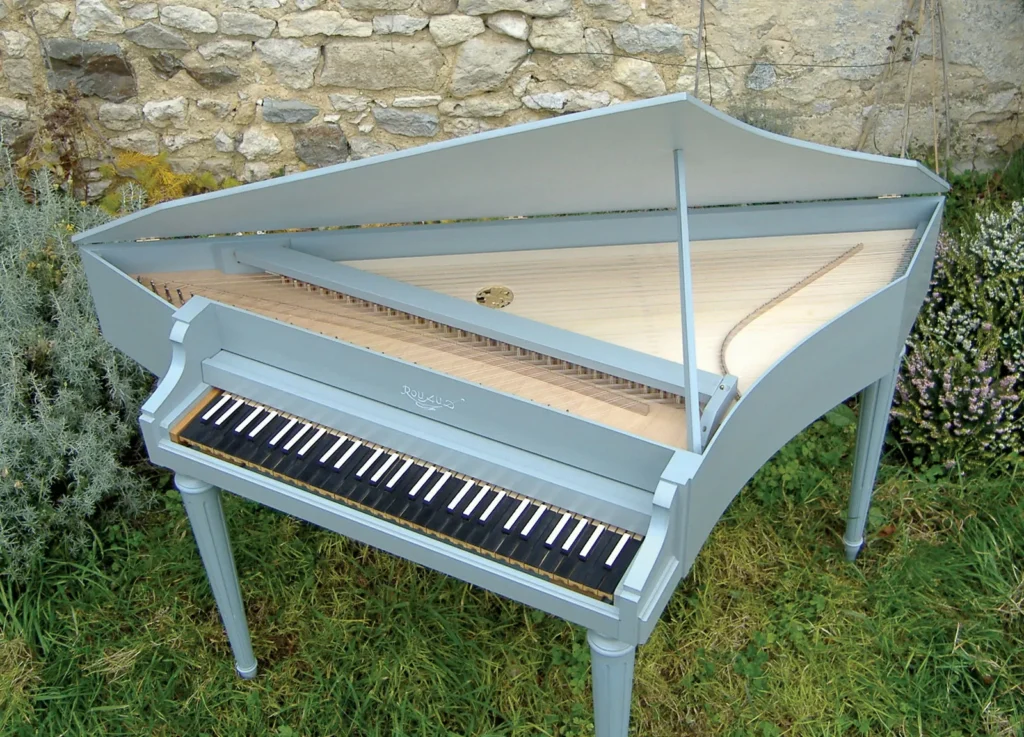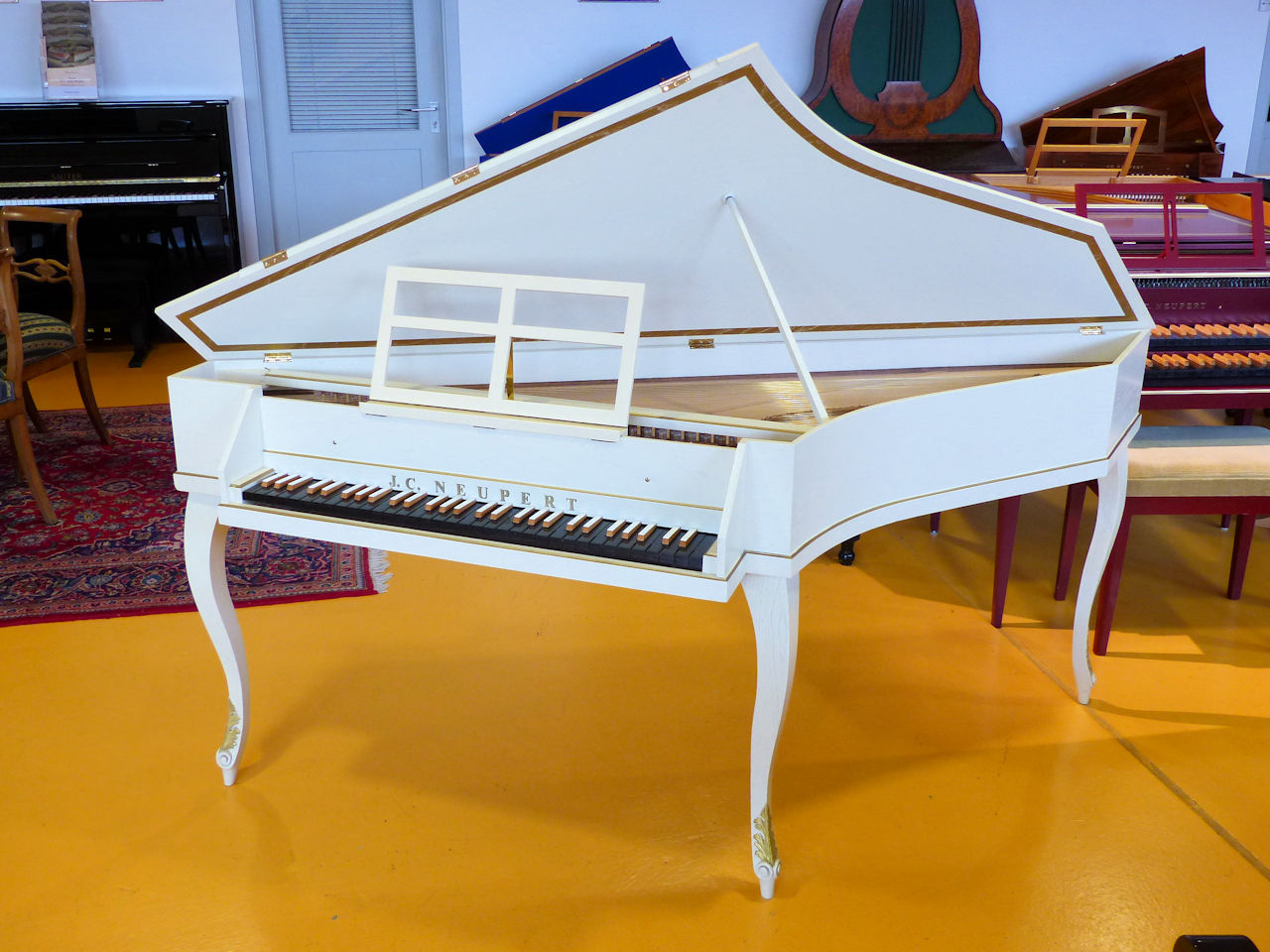If you’re in the market for a new piano, this is probably one of the top questions on your mind. There are so many different types of pianos out there, it can be overwhelming to figure out which one is right for you. As an experienced piano player and music enthusiast, I have tried and tested various pianos over the years, including spinet pianos. In this comprehensive guide, I will share my expertise and personal experiences to help you decide if a spinet piano is a good choice for your needs. Let’s dive into everything you need to know before making your next piano purchase!
So, Are spinet pianos good??
It depends on what you are looking for in a piano. Spinet pianos, also known as spinets, are smaller upright pianos that were popular in the mid-20th century due to their compact size and affordable price. While they may be a good option for some people, they may not be the best choice for others.
On one hand, spinet pianos are great for those with limited space or budget constraints. They take up less room than traditional upright or grand pianos and can often be found at a lower cost. This makes them a practical choice for beginners or casual players who do not want to invest too much money into an instrument.
However, it is important to note that spinet pianos have shorter strings and smaller soundboards compared to larger uprights or grands. This can result in a weaker tone and less dynamic range of sound. Additionally, the action (the mechanism that connects the keys to the hammers) on spinets is often inferior compared to other types of pianos, which can affect playability and overall sound quality.
Ultimately, it comes down to personal preference and individual needs when choosing a piano. If you prioritize affordability and space-saving features over top-notch sound quality, then a spinet piano could be a good fit for you. However, if you are serious about playing and want an instrument with optimal sound production capabilities, investing in a larger upright or grand piano might be worth considering.
In conclusion, while spinet pianos may not offer the same level of performance as other types of pianos, they still have their own unique advantages that make them suitable options for certain individuals. It’s important to carefully consider your priorities before making any decision on which type of piano is right for you.
Understanding the Unique Characteristics of Spinet Pianos
Spinet pianos stand out among other types of pianos for their compact size and unique design. Unlike traditional upright or grand pianos, the spinet’s smaller frame makes it an excellent choice for cozy living spaces. Inside, the strings and hammers are arranged in a way that conserves space but still allows for rich sound production. This clever construction involves what’s called a “drop action” mechanism, where keys connect to shorter levers beneath them.
One distinctive feature of spinet pianos is their elegance wrapped in simplicity. Their cabinets often boast intricate detailing while maintaining a slim profile that blends seamlessly with home décor. The ease of placement enhances both functionality and aesthetics. However, this compactness comes with some trade-offs—like slightly less resonance compared to larger models—but what they lack in volume, they make up for in charm and accessibility.
Here’s why many love spinets:
- Space-efficient: Perfect fit even in small rooms.
- Aesthetic appeal: Beautiful designs complement interior styles.
- Affordability: Generally more budget-friendly than larger models.
Ultimately, these features make the spinet piano a delightful addition to any household looking to enjoy music without compromising on style or space efficiency.
Comparing Spinet Pianos to Other Types of Pianos
When it comes to choosing a piano, the spinet variety often stands out because of its unique features. These pianos are smaller and more compact compared to their larger counterparts like uprights and grands. This makes them ideal for people living in tight spaces or those who want an elegant yet unobtrusive piece of furniture. Spinet pianos typically have a different action mechanism called the “drop action,” which places some limitations on touch responsiveness but allows for their sleek design.
On the other hand, if you compare spinets with upright pianos, you’ll find that uprights offer a richer sound quality. The larger soundboard and longer strings in an upright produce deeper tones that many musicians prefer. For those seeking even more powerful acoustics, grand pianos are the go-to option; they possess horizontal frames and longer strings that deliver unrivaled resonance and dynamic range.
- Compact Size: Perfect for small rooms.
- Sleek Design: Fits well as decorative furniture.
- Lesser Sound Quality: Compared to upright or grand pianos.
If space isn’t an issue, you’ll likely gravitate towards either an upright or a grand due to their superior tonal capabilities and greater expressive potential. However, don’t count spinets out entirely—they offer significant advantages when space constraints are at play while still providing enough musical quality for casual playing situations.
Read also: Are spinet pianos good?

The Pros and Cons of Choosing a Spinet Piano
There’s something charming about a spinet piano sitting in the corner of a cozy living room. While it’s smaller than its grand or upright relatives, this compact instrument has its own set of perks and quirks. On the bright side, spinets are incredibly space-efficient, making them ideal for tight spaces like apartments or small homes. Their size also translates to easier transport; you won’t need an army to move one around. Additionally, they tend to be more affordable—perfect for beginners dipping their toes into the world of piano playing without wanting to break the bank.
But not everything about spinet pianos is sunshine and roses. The action mechanism inside these petite instruments is known as a “drop action,” which means it’s set lower than usual. This can sometimes lead to issues with responsiveness and touch sensitivity—you might have less control over dynamics compared to larger models. Also, tuning can be a bit trickier due to their construction; technicians often find them more finicky and time-consuming. So while spinets offer some significant advantages for certain lifestyles, it’s important to weigh these against potential drawbacks before committing fully.
In summary:
- Space-efficient
- Easier transport
- More affordable
But consider:
- Poorer touch sensitivity
- Difficult maintenance
Choosing wisely depends on your unique needs and priorities!
Practical Considerations When Buying a Spinet Piano
When you’re thinking about buying a spinet piano, there are some practical things to ponder. First off, think about the space you have at home. Spinets are compact, making them perfect for smaller rooms. But don’t let their size fool you—they can be quite heavy! Make sure your floors can handle the weight, and consider how you’ll transport it from the store to your house. Moving it upstairs? You might need professional movers.
Sound is another biggie to contemplate. Spinets usually have a shorter string length due to their small size, which affects the sound quality compared to larger pianos like uprights or grands. While they may not produce powerful tones fit for concert halls, the intimate sound could be just what you’re looking for in a cozy setting.
- Check out different models
- Test as many as possible
- Consult with an expert
Also worth considering is maintenance. Spinets have complex actions because of their unique drop-down design; this means regular tuning and occasional repairs might cost more than they’d with other types of pianos. So keep future expenses in mind when budgeting for your purchase.
If all these factors align with your needs and lifestyle, then maybe a spinet piano is right for you!
You may also like: how many notes are in a piano
Conclusion: Making an Informed Decision about Purchasing a Spinet Piano
When you’re considering adding a spinet piano to your home, it’s important to think about both its advantages and its quirks. Spinet pianos are known for their compact size, making them an excellent choice for smaller living spaces. They fit comfortably in tight corners and can even add a touch of elegance to any room with their stylish cabinetry. Despite their small stature, these pianos still provide the rich sound that many music enthusiasts crave.
However, it’s crucial to understand some of the challenges that come with owning one. The action mechanism in spinet pianos is often quite different from larger models like uprights or grands; they use what’s called a “drop action” which tends to be more complex and harder for technicians to service. This could mean higher maintenance costs down the line. Additionally, because of this design quirk, achieving dynamic expression might be slightly more challenging compared to larger instruments.
- Pros: Compact size, elegant appearance
- Cons: Complex mechanics, potential higher maintenance
In conclusion, deciding on purchasing a spinet piano requires careful consideration of both its benefits and drawbacks. It offers convenience and aesthetic appeal but comes with unique mechanical complexities that may require more frequent professional attention.
If space efficiency is paramount in your decision-making process—and you’re prepared for possible extra upkeep—a spinet piano can indeed be a wonderful addition.

